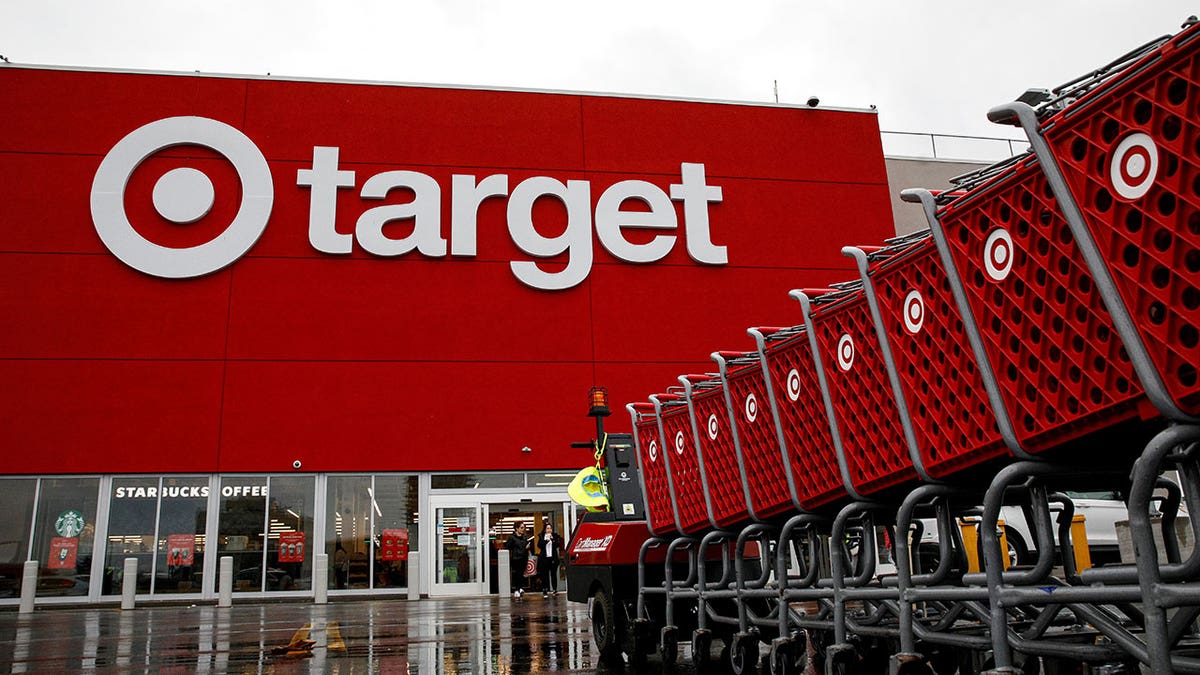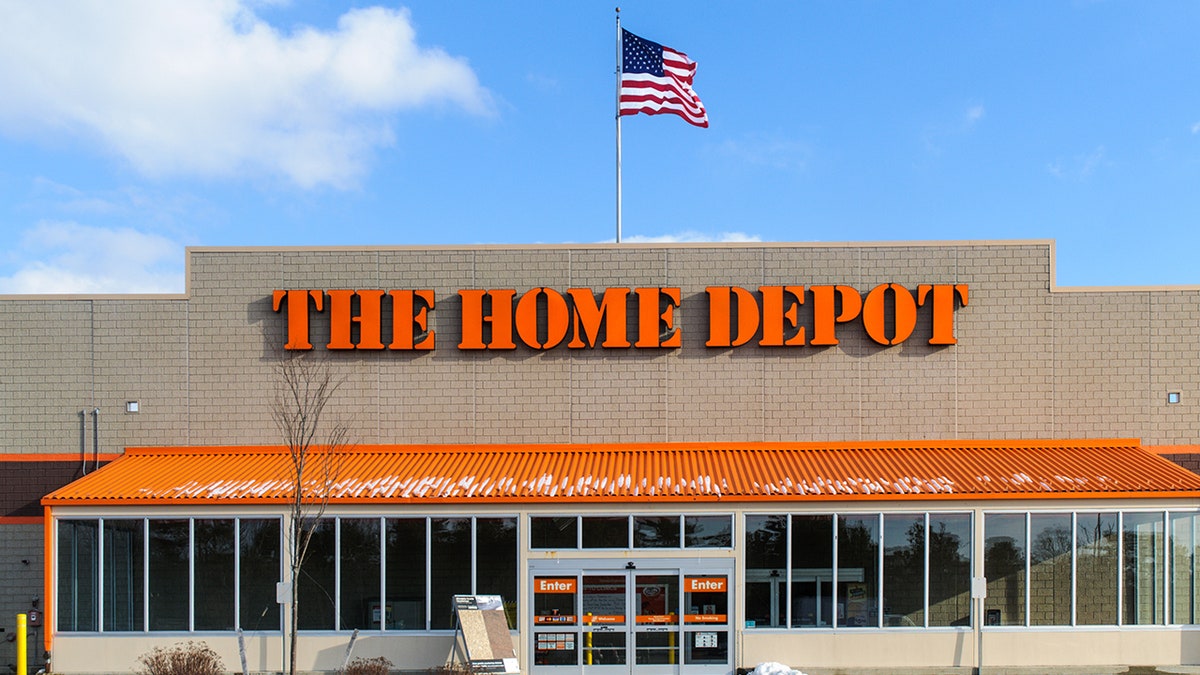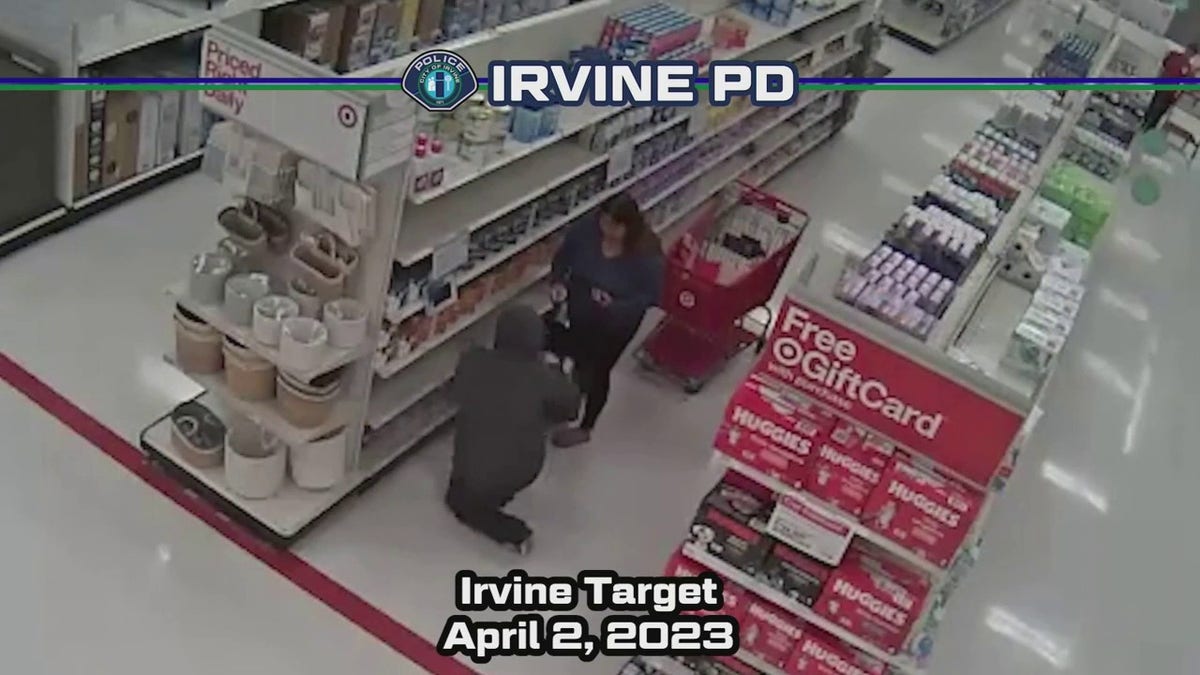Target store closures speak to wider business issues with theft, violence: Retail expert
Retail safety expert Matt Kelley discusses the stunning closures of nine Target stores this week due to rising theft and violence, and how they affect all consumers.
Target announced this week it would soon close multiple stores due to an alarming rise in theft and violence, and a loss prevention expert says it's not just retailers that are going to feel the pain if the crime wave isn't addressed.
"There's a significant impact to the communities when this happens, because now they have stores like a Target that aren't operating at a profitable level, so they're forced to close their stores down, and it really impacts the community… that community loses [part of] their tax base," retail security expert Matt Kelley said. "The people who are working there have to go find other opportunities to make a living for their families, and then the community also has to drive further to get the goods that they would otherwise get from that store that closed down. So, it impacts them in a number of different ways, financially and socioeconomically as well."
The National Retail Federation says retail theft, violence and crime continue to be growing problems for major businesses. In its annual National Security Survey, the NRF said the average shrink rate in 2022 "increased to 1.6%, up from 1.4%" in 2021, which came out to a staggering $112.1 billion in lost sales in 2022.
The report found external theft, including organized retail crime, to be the leading cause of shrink for the 177 retail brands it surveyed, at an average of 36% of total loss. Employee theft reported in at 29% of shrink loss, while process, control failures and errors came in at 27%, unknown 6% and other sources came in at 1%.
TARGET POINTS TO RETAIL CRIME AS REASON AS COMPANY SETS TO SHUTTER 9 STORES

Target shut down nine stores across four states, citing theft and organized retail crime threatening the safety of employees and customers. (Reuters)
"Now, you talk about companies like Home Depot, Kroger that are in the billions of dollars, hundreds of billions of dollars in retail," Kelley told FOX News Digital. "That adds up very quickly."
This week, Target made headlines for announcing it was closing nine stores across four states by the end of next month, citing theft and organized retail crime threatening the safety of their workers and customers and making their business "unsustainable" in those locations. The four stores include locations in Seattle, Portland, San Francisco, Oakland and New York City.
"It is becoming more and more of a problem for large retailers, not only for the fact that it is impacting their bottom line from a theft and shrink standpoint, but these bad actors are becoming increasingly more violent as well," Kelley said. "So, it's not just impacting their ability to service their customers by having product on the shelf and impacting the profitability. It's also causing a life safety hazard for the associates, for the customers who are in these retail environments."
Walmart has made it clear this is more than just an industry problem, with CEO Doug McMillon saying last month that they need more help from local governments.
"We do think that in some jurisdictions here in the U.S., there needs to be action taken to help protect people from crime, including theft," McMillon told investors.
CALIFORNIA DEMOCRAT FRUSTRATED BY RISING THEFT ADMITS LIBERAL CRIME BILL WAS ‘BIG MISTAKE’
David Johnston, Vice President of Asset Protection & Retail Operations at the NRF, said the report shows crime isn't just hurting businesses' bottom line, but also threatening the safety of workers.
"Retailers are seeing unprecedented levels of theft coupled with rampant crime in their stores, and the situation is only becoming more dire. Far beyond the financial impact of these crimes, the violence and concerns over safety continue to be the priority for all retailers, regardless of size or category," he said in a statement.
Theft affecting major companies ranges from petty shoplifting to highly organized syndicates that give street-level actors shopping lists of things to steal and then re-sell.
Target CEO Brian Cornell said on a second-quarter earnings call in August that stores had a "120% increase in theft incidents involving violence or threats of violence" in the first five months of the year, according to the Washington Post.

An American flag flies over the entrance and outside facade of a large Home Depot store. (iStock)
"Three years ago, retailers weren't talking about it on their earnings calls. Now you see it come up more and more and more on retail earnings calls on a quarterly basis, because it is impacting the profitability of the company," Kelley said.
Previously the head of loss prevention and security at Home Depot for 10 years, Kelley is now with mobile security company LiveView Technologies, which works with major companies around the world.
He advised consumers to be wary of unknowingly buying stolen property. One think to look out for, he noted, was items selling unusually cheaply in places like pawn shops or online at Facebook Marketplace or Craigslist. A law took effect in June that requires online marketplaces to disclose information about certain high-volume sellers, but how effectively that will be enforced remains to be seen. Some thieves also fail to remove the UPC stickers from packaging on stolen items.
He said it was important for legislators at both the local and federal levels to tackle root causes by cracking down on the criminals organizing these efforts.
RETAILERS LOST $112B IN 2022 BECAUSE OF ‘UNPRECEDENTED LEVELS’ OF THEFT
"There's no silver bullet, and really you're just treating the symptoms, you're not treating the root cause, and all of those things start at legislative levels to be able to hold these bad actors accountable," Kelley said.
Target said it had made efforts to curb retail theft before making its drastic decision to shutter stores.

Target announced it was making ‘significant investments’ in security, staff training, technology and theft-deterrent tools to stop organized retail crime. (Irvine Police)
"[W]e invested heavily in strategies to prevent and stop theft and organized retail crime in our stores, such as adding more security team members, using third-party guard services, and implementing theft-deterrent tools across our business. Despite our efforts, unfortunately, we continue to face fundamental challenges to operating these stores safely and successfully," the store said in a statement.
In May, the company revealed it was expecting to lose $500 million more from organized retail crime than it had the year before.
CLICK HERE TO GET THE FOX NEWS APP
For more Culture, Media, Education, Opinion, and channel coverage, visit foxnews.com/media.
FOX Business' Daniella Genovese contributed to this report.









































